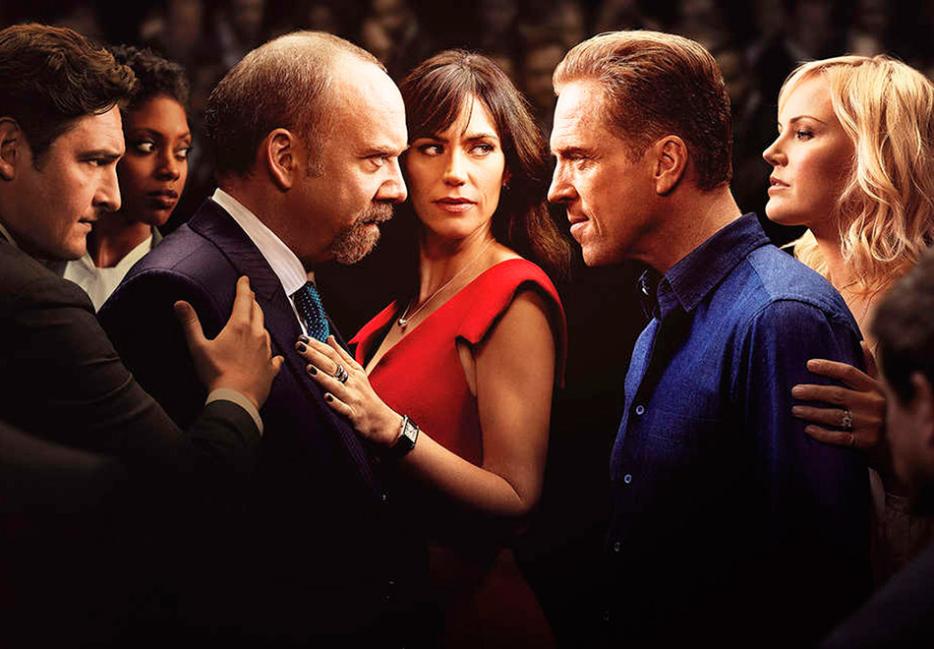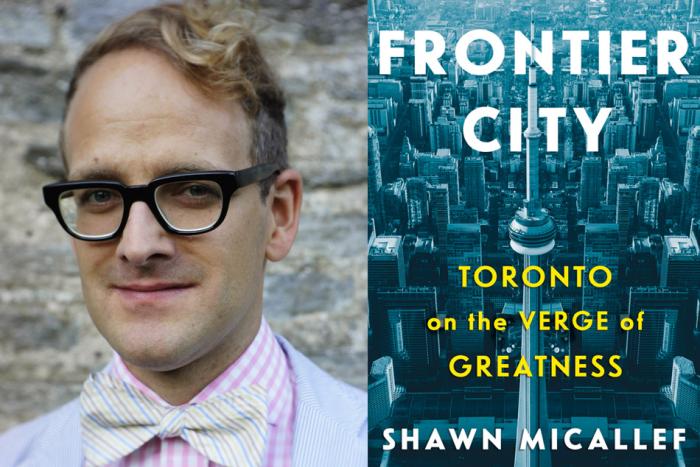“Listen, here’s the thing. If you can't spot the sucker in your first half hour at the table, then you ARE the sucker,” says Matt Damon as New York City card sharp Mike McDermott in Rounders. That line, which jumpstarts the film, ended up being a hell of a lede for screenwriter Brian Koppelman, who entered the silver screen by co-writing the legendary poker fable. In a way, Damon’s opening dictum was prophetic. Hollywood unearths, uses, and discards screenwriters at an alarming rate. Here today, gone tomorrow. But Koppelman has had a keen eye for spotting the suckers since the inception of his career. As a result, he’s still at the table, alive and kicking. A modern day Renaissance man, he’s the creator of Showtime’s drama Billions, which comes back for its second season this weekend, the host of Slate’s podcast The Moment, and a sporadic director of feature films, including Knockaround Guys and Solitary Man.
Sam Fragoso: Let’s start with Rounders, which is one of my favorite movies of all time.
Brian Koppelman: One night I walk into an underground poker club called the Mayfair Club in New York. I lost $750 that evening and when I walked out, it was 3:30 in the morning and I called Dave [Levine] and said, “I think I know the world we should write about.” The way these people talk, the way these people express themselves, the fact that they live from sundown to sun up playing cards set up the story we wanted to tell. He came back with me the next night and agreed, and we just started hanging out at various Poker rooms in the city and reading every morning and writing and outlining our movie.
Were you just completely intoxicated by this scene?
Oh, yes. It was two years of playing cards almost every day. I would play a lot of poker out in (legal) Los Angeles clubs, and I was reading a bunch of books about it. But I walked into a club in New York and saw that there was this other component to it; it was people who cared enough to do this thing in a very grey area in regards to law that I really realized it was this whole world.
What’s fascinating about Rounders—and The Hustler—is that you treat playing cards as a serious discipline. It doesn’t feel like Matt Damon is gambling in the movie.
The Hustler is a great reference for us! But pool is always considered a game of skill, even if they’re gambling, people can watch other people play pool and they understand that it’s a game quite similar to golf in that it requires the physical component, and because you have to put that in practice. But luck plays a very small part once the actual game starts. I think you’re right that in poker, many people before Rounders thought that the luck predominated it.
So you’re around these poker players for two years. Is there any part of you that almost gets wrapped up in playing cards rather than screenwriting?
Well, then it did. Both things were dawning on me at the same time, really. Because I wasn’t writing then; Dave had started writing, but I hadn’t yet. They were intermingled things. Look, I’m still completely taken over how you’re supposed to play Aces on the button, three handed games in a late stage tournament, I could think about that for hours. I mean, unfortunately, I’m not a world class poker player. My skills really are in how to tell the story of these things or how to dive in and try to understand the mindset of someone who’s world class at that, or someone who’s world class at investing or, world class at being a con-man. I watch someone play poker and can’t fathom what it would feel like to be that in control of your state at a card table while crunching all those numbers and getting reads on everybody and understanding optimal play and when to deviate from optimal play and thinking about ranges, and all the stuff that these guys today are staggering. Yeah, man, I’m still completely captivated by it.
Was it hard to leave behind?
Oh yeah, but we wrote about it and we did it and I still played a lot of poker for a long time. The movie was originally a bomb in movie theaters, making $21 million. It didn’t really become the thing until the DVD, and then it became a hit. The first year was interesting, because we knew the movie was a really good movie. It took a couple of years for the thing to really catch on to where it is today.
In the first year, where that public response wasn’t immediate, did you doubt your ability as a writer?
There were a few reviews in places that mattered to us; and more than that, a few people in the poker world told us we got it right, and I knew that we had gotten it right. But also we had moved on. The weekend Rounders came out, we were already researching our next movie. We were in the middle of the country researching for Knockaround Guys. We moved forward because we had the sense that we better continue if we wanted to be people making stories. There are ups and downs in any career that is a show business career. There are times where you feel your work is in demand and there are times where you feel like nobody’s interested. No matter the period of time in our careers, we would write a spec script. Whether that’s Solitary Man or Billions. You take all those other questions out of it, because you’re showing up and doing work whether someone’s paying you to or not. And then you’re just betting on the fact that if you do the work, and you do it really well, they’ll finance it.
You sound pretty healthy for a writer.
I definitely eat too many bagels. You gotta understand: I’m [now fifty] years old, and I was thirty when we wrote Rounders, so I had the time to absorb these lessons and figure out the creative rituals to keep myself centered on doing the work. Plus, I married the right person. We have kids that we love, my life long best friend is my partner in what I do creatively and professionally. I’ve been able to set this all up in a way that helps with sanity, because there’re a lot of different ways that this could go from when you first break into the movie or television business.
Did you have problems with sanity before meeting your partner and having a kid?
No! I was really lucky and married the right person at twenty-five and we had our first child before I even wrote Rounders. That was a huge blessing in my life.
What was happening in your early twenties?
I was in the music business. In college, I had discovered singer songwriter Tracy Chapman and made her first album. I was executive producer of that album, so I was an A&R person in the music business right up through when we wrote Rounders.
Reservations about getting married that young?
I had no reservations. A definite thing that I have is that I don’t lie to myself and I’m able to recognize when things are real and not real, and when I met my wife, Amy, I just knew what that was, and I was like, “Oh, this is the person I want to spend the rest of my life with.” The same way I could look at Tracy Chapman on a stage and know that she was better than anyone else playing music in that moment, even if it didn’t seem like the music she was playing was the music people would buy. Or how I could walk into a card club and say, “Hmm, there’s a movie here and here’s why.” I think it’s a similar thing that allowed me to, when I met Amy, recognize that this was the right person I should get married to, and I should try to do this right now. I’ve made a series of decisions like that in my life, and for some reason, they’ve turned out to be right.
So what room did you walk into to make Billions?
Someone had sent us a book about the boiler room time during the ‘80s, like The Wolf of Wall Street thing, years ago, when we were making Ocean’s Thirteen. And I remember us looking at that thing and saying, “You know what, this is not the next story in the financial world. The story is the hedge fund story.” So I was living in Manhattan, and Dave was living in Greenwich. We were around all these people. Then, somehow, the US Attorney idea came to us, too, and we started thinking about the kind of unfettered power that US Attorneys have. To us it became clear these billionaires are like nation-states and these United States Attorneys are like kings, and it became something unexplored but worth exploring about the intersection of these people, about the influence that they wield and about the way that they live their lives.
There’s something primal about the battle in the show: greed versus justice.
On one level they want justice, but I think Chuck Rhodes has some conflicting desires, and so does Bobby Axelrod. It’s these forces against one another. The show also lets us see all these people manage their victims. You’re looking at three kings managing their own kingdoms and then readying their kingdoms for war.
In the writing, were you cautious about making sure the pendulum doesn’t swing too much in one character’s direction, either Bobby or Chuck?
It was great to see people leaning one way, and watching the resolutions of episode 8, 9, or 10 [of the first season]. Watching people recalibrate their opinion of Axe and having to grapple with, Wait, what did he do exactly? How am I supposed to feel about him? I thought that I loved him and that the hedge fund guy was heroic, but, what?
Do you feel like you’re playing god when watching these reactions?
[laughs] No, man, no! What’s great about doing this is that you’re telling these stories and you don’t know what’s going to land. That’s the great thing about being someone who creates narrative fiction for screen. You don’t know, but all you can do is follow your instincts, and when it lands the way you hope that it lands, it’s incredibly rewarding. This experience of Billions has been the most rewarding that Dave and I have ever had creatively. That audiences would be okay with the fact that we don’t say all hedge fund people are evil and all law enforcement people are good is amazing. It’s great, to me, to make television in this era of the recap and Twitter. I love that we were able to finish the first season before the first episode aired. We were able to not be influenced by what anybody wrote because we locked the whole season.
You engage pretty frequently on Twitter.
It seemed to me where there’s this real community and you really can see and feel what people are talking and thinking about. So, why wouldn’t you be a part of that?
That’s definitely one side of it. You’re not bothered by the toxicity of Twitter?
When it’s directed at me, it doesn’t faze me. I hate it when it’s directed at other people. I think if I were a woman, it would be almost impossible. Women are often targeted in a way that’s incredibly vicious. If someone’s trolling me, I’m not asking for trolls, it’s not fun. I’m happy to answer questions from some people, I’m happy to try to help people.
The positivity is refreshing.
If you listen to my podcast, you know there’re a hundred-plus hours of me and my guests talking about this kind of thing. I’m somebody who gets up and gets to do basically what I want. And I’m rewarded for it in all sorts of different ways. Why wouldn’t I interact with the people who are engaging with the material and who are interested in what I’m interested in? I’ve talked a ton about it on my Vines, my podcast, and in stuff I’ve written on my blog, but I was a blocked writer until I was thirty. Until I walked into that club, until Dave and I said to each other we were going to do this, I was somebody who had a really hard time figuring out how to take these feelings that I had and make something out of it. So, if I’m able to help somebody else who wants to do their thing, why wouldn’t I? I often think about Lester Bangs in Almost Famous and how he says, “Oh, I’m too busy to do whatever,” and then he shows up and sits with the kid.
How have people been engaging with the podcast?
I get emails telling me that the podcast has helped them take a creative risk that they were too scared to take before. And podcasts take a lot of time. The financial rewards of a podcast are very, very slender. The podcast is truly something I do because I’m fascinated with talking to people, and the response is so consistently grateful. I’m always wondering whether I’ll be able to continue it, and it’s possible that I won’t at some point. Because I won’t ever phone them. It takes time to prepare and to think about what I want to talk to the guest about, and book the show. But it's becoming harder and harder to do.
In thinking about the show, do you have certain episodes that stick out to you?
This conversation that I had with Chuck Todd. He was really forthright and introspective, and human, and I loved that. I loved the conversation that I had with Jon Acuff, and there’s so many. The one with Mario Batali. There’ve been many of these conversations. People really responded incredibly strong to the conversation I had with my wife, Amy Koppelman.
The David Lipsky one was excellent.
He’s a really fascinating person and is incredibly well read, so we got to really talk about books. I could sit and talk about Murakami all day long. There’s just not always the opportunity to do that.
Is there a part of you that wants to be a novelist?
In Billions I’m able to write about the stuff that I’m interested in. The great thing about writing characters like Axe and Chuck Rhoades is that I’m writing characters smarter than I am, and they can say anything. I never feel constrained, or, Ooh, I wish I could write a novel.
Do you see yourself in the Billions characters?
That’s a hard question to answer. Everything you write has parts of you. But, no, there’s nothing autobiographical in Billions. I’m more of a Metallica fan than the Replacements. I love Bob Dylan, and so does Chuck.
Let’s talk Garry Shandling. He was a big influence on you.
If you asked me to name the five best television shows ever made, The Larry Sanders Show is on that list. In episode eleven [of the first season of Billions], two characters say, “Hey now!” We shot that [the December before Shandling died].
When he passed, you wrote about how he a distinct point of view.
Murakami, in his work, can locate himself and the spot from where he’s looking. In the same way Michael Stipe did when he was in REM and the same way Bob Dylan does. All the stuff you do as an artist—learning about other art, reading, watching movies and theater, listening to music—you take all that in and reflect on it and think about it, read the newspapers, and follow what’s going on in the world, I think you begin to form opinions. In creating the work, you’re testing your theses about how the world works or how it should work, and you’re examining it. It doesn’t mean that the work itself makes a direct statement, but somehow, within the exploration, if you’re being true as a creator of things, your point of view surfaces, and that’s certainly true of Garry Shandling. And you can watch those first stand up slots on Letterman, and then you can watch the The Larry Sanders Show, and you understand the way that person saw the world.
Does the testing ever stop?
I don’t know, probably not! Perspective and point of view is what separates hacks from artists.
And are you on the artist side?
[laughs] I’d never say that! Are you kidding me, man? I’m searching and trying really hard, but I’d never say that about myself.






